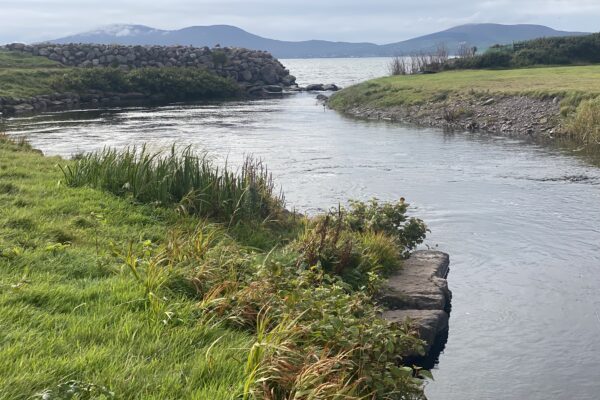-
Weekly Update – 20 December 2024
Deenish Island Update - The Aquaculture Licence Appeal Board has again delayed the determination of the appeal related to the closure of the salmon farm at Deenish which was ordered to close in April 2019. This farm has continued to operate and can do so, while the appeal process is ongoing. This is a process which has taken six years thus far and may again be delayed in May. The recent High Court case judgement regarding the salmon farm in Bantry Bay did negatively comment on undue delay involving ALAB but this seems to be ignored in regard to this appeal. Deenish Island farm will again be stocked with 400,000 smolts in early spring thus facilitating the continued operation of the farm. This situation is not acceptable and there must be a local, national and international campaign to move these facilities to closed containment. Waterville Butler Pool - How many seatrout are running this system now. The Golden Miles Project A French Campaign about the near shore ecosystem and how netting of coastal areas and beyond affect all species - A very interesting read and credit to DÉFENSE DES MILIEUX AQUATIQUES and their president Philippe Garcia for reaching out to Salmon Watch Ireland. This is a great document and examines many issues which share many similarities to Ireland. There is a very interesting segment on Atlantic salmon and should be read by all concerned with preservation of coastal areas. Well researched document and interesting read.
Continue reading -
Weekly Update 14 Dec 24 – Marine Institute Salmon and Sea Trout Census 2023
The Marine Institute Annual Report outlines the activities of the MI in 2023. It is a large piece of work but our interest is focussed on activities involving wild Atlantic salmon, sea trout and the large scale ranching program being carried out in Burishoole. The trapping system in Burishoole is quite unique in that it enables personnel to physically count all emigrating smolts and sea trout juveniles leaving the system and count and examine adult returnees including ranched salmon. The count is full (except if traps are overwhelmed by flood water) with each fish examined and this allows the removal of adult ranched salmon before they reach the spawning beds. The data series is unique with data stretching to over sixty years and is one of Irelands index systems which reports to ICES and NASCO. The wild salmon census indicates a survival rate of 5.6 % of fish who emigrated to sea in 2022 and continues a static and depressed return rate. This return may be slightly upgraded by return of multi sea winter fish in 2024 but these are few in numbers. The sea trout census is again alarming and it is reasonable to conclude that this stock is functionally extinct and the primary cause must be salmon farming in Clew Bay. It is apparent that this population was destroyed in the 1980's (Expansion of Salmon Farming) and obviously reached such a low ebb that recovery is probably out of the question unless salmon farming is removed from the area. It is interesting that sea trout are included in the nature restoration law and what better place to start their rehabilitation where progress in restoration could be accurately followed. At this stage it could take decades to rehabilitate the population back to functioning as a self sustaining stock. While not having accurate access to the amount of ranched juveniles released it is possible to suggest that their survival has reduced significantly in the past number of years which coincides with poorer returns of wild fish. The following video gives us a view on how the traps work and how the data is used to inform management of salmon stocks. Interesting facility but we certainly cannot condone the lack of comment by the MI on both the impact of salmon farming on wild salmon and the silence regarding the collapse of sea trout stocks. Newport Research Video
Continue reading -
Weekly Update 08 December 24
Salmon Watch Ireland would like to appraise our supporters of various activities which have come to our notice over the past week. The item which we would like to highlight is the newest research newsletter from Inland Fisheries Ireland and in particular the inbuilt data hub which is a very much needed public viewing platform full of excellent resources for the public and more importantly those people who have an interest in Salmon and wild salmonids. We assume that other sources of research will be added along the line as they become available. Please click on photos and explore this resource.
Continue reading



